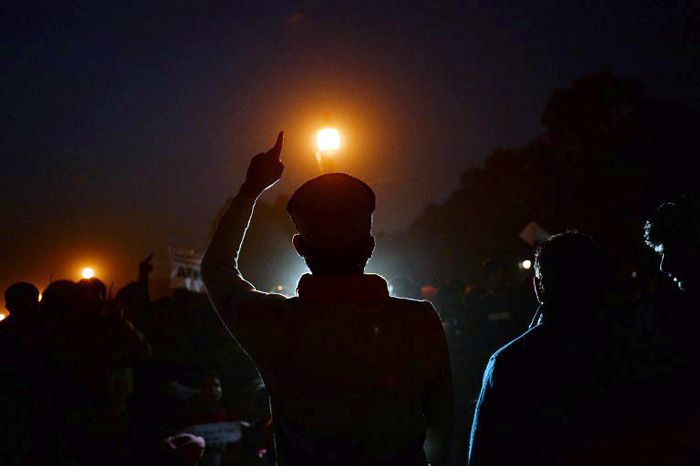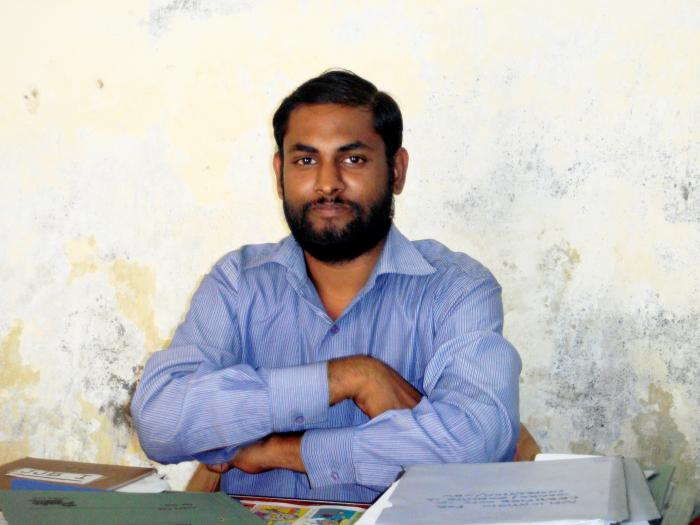#Nirbhaya trial was a test case to ruin juvenile justice. Here's why it worked

The act
- Maneka Gandhi wants Rajya Sabha to amend the Juvenile Justice law
- Strangely, she was seen as the architect of the original law in 2000
The danger
- The new bill is regressive. It seeks to lower the juvenility age to 16
- @9_asthana says it\'ll negate 150 years of struggle for child rights
- It\'ll allow the state to wash its hands of ensuring children\'s welfare
More in the story
- What happened when a hysterical media forced the US to crack down on juveniles in the 1980s?
- When the boy was declared a juvenile, the police didn\'t appeal the order as it routinely does. Why?
The stir against releasing Nirbhaya's juvenile rapist appears to be a call for protecting victims' rights and public safety.
It sadly isn't.
It's essentially a call to remove the protective legal umbrella from over our 42 crore children. It's part of an old agenda. Not many people know that it was the previous NDA regime which had brought the Juvenile Justice Act, 2000. And it was Maneka Gandhi who had shepherded it.
It was largely a progressive legislation. But when it was rolled out, sections of the state apparatus, particularly police and the lower judiciary, felt uneasy about some of its provisions. Primarily, they wanted to reduce the juvenility age from 18 to 16 years.
By 2009-10, the idea had found enough political acceptability that the UPA regime readied a Juvenile Justice Amendment Bill. But child rights activists opposed reduction in the age of juvenility and other proposed changes.
They succeeded in shaping the draft bill along a more positive and pragmatic line. But by the time a final call could be taken on the changes, the UPA lost power to the NDA.
Pushing back
Not that the people who wanted the age reduction had given up. They had found an opportunity in the tragedy of the 2012 gang rape to raise the pitch.
The media played its megaphone. The juvenile's role in the crime was highly exaggerated to sway public opinion against the Juvenile Justice Act. Not surprisingly, now when the NDA wants to make regressive amendments to the law, the Rajya Sabha is being blamed for not letting it do so.
Also read: The Juvenile Justice Debate: why the lynch mobs should not win
Shockingly, it's Maneka Gandhi, the architect of the existing juvenile law, who has gone to the Rajya Sabha with the highly regressive Juvenile Justice Bill, 2015.
Her Bill is designed to dismantle, with one fell stroke, India's glorious child protection regime that has evolved over 150 years. It's tragic that the state is using the highly emotive and sensitive issue of women's safety as a cover to abandon its welfare obligations towards children.
Soon after the Nirbhaya gang rape, the Supreme Court was flooded with petitions against the Juvenile Justice Act. Amod Kanth of the NGO Prayas intervened. He underlined that a solution lay in significantly expanding an after-care programme for children.
Sadly, his voice went unheard. Instead, in the amendment bill, "aftercare" has been reduced to "one time financial assistance" and that too only for children who are released from child care homes.
Is it any wonder that neither of the slogans Maneka has shouted to garner support for her bill - rape victims' rights and public safety - find no place in it. This despite the fact that anyone speaking against the bill is being declared an enemy of the victims' rights and public safety.
How can the state get away with this? The subjects of "juvenile justice" and "children" aren't politically and electorally productive, so implementing laws concerning children isn't a priority for our rulers.
Indeed, it was after witnessing this state apathy for six years that the higher judiciary had decided to step in. In 2006, for the first time, "juvenile justice" was included in the agenda of the Chief Justices' Conference, which is held every three years.
Also read: Juvenile rape: why AAP's remedy is worse than the malaise
Since 2006, every high court and now even the Supreme Court, have set up panels of sitting judges to monitor implementation of the juvenile justice law. The courts have also been pressurising governments to deliver sensitive and quality systems and services for children who come in conflict with the law or are in need of care and protection.
Abdicating duty
But now the state, riding on public sentiment over the Nirbhaya case, is trying to rid itself of the hassle of adhering to a separate juvenile justice system and delivering their rights to children.
In this, unfortunately, the state is being greatly helped by the media. Perhaps, they haven't fully grasped the consequences. Here's a little help from history: in the 1980s, America was forced to crack down on juveniles because the media and conservative intellectuals convinced the public that a tsunami of juvenile crime was looming.
The prophesied tsunami never landed, but American children suffered a great deal.
Also read: #NirbhayaCase: the juvenile and why he must get another chance at life
More worryingly, the current political dispensation too seems to have failed to comprehend this scenario. It has been seduced by those who see welfare laws as "unnecessary and "hassle-filled".
Indeed, while debating the amendment bill in the Lok Sabha, Maneka had revealed that soon after she took office, she was approached by some police officials who gave her the "50% sexual crimes are committed by juveniles" theory.
'50% sexual crimes by juveniles' theory is a lie, but does anyone want to listen? asks @9_asthana
The "theory" is not at all true, but who wants to even listen?
Also read: Juvenile in Delhi gangrape case will be released but won't be 'freed'
But why exactly is the police establishment uncomfortable with the existing juvenile law?
The primary duty to bring a child into the protection of the juvenile justice system rests with the police. But the police isn't willing to get into "welfare work". So, we see police across the country pushing children into the adult criminal justice system. Only those with resources and the strength to wage a legal battle manage to return to the juvenile justice system. The rest rot in jails.
In 2011-13, the Delhi High Court, through suo motu action, liberated at least 200 children from Tihar Jail and forced the Delhi police to take action against 182 police officers who had put them there. If this is the condition of children in the nation's capital, one can only imagine what may be going on in distant areas.
Undermining the law
When the Nirbhaya rape caused widespread outrage, the police found an opening to generate public opinion against the Juvenile Justice Act. So, we saw police "sources" planting highly exaggerated claims about the juvenile's role's in the media.
In 2011-13, the Delhi HC liberated at least 200 juveniles locked in Tihar Jail with adult criminals
Much of what was reported about the juvenile hasn't stood scrutiny but it worked to create panic, which was the intention. Now a panicked citizenry, constantly fed stories of "swelling juvenile crime" by the media, is in no mood to calm down.
Also read: Nirbhaya case: No directive from High Court, juvenile rapist likely to walk free on Sunday
Indeed, when this juvenile was declared a "child" by the Juvenile Justice Board, the police chose not to appeal against the order. For a lawyer who has almost exclusively dealt with juvenile cases, the police's decision came as a surprise to me.
A panicked citizenry, fed stories of 'swelling juvenile crime', is in no mood to calm down: @9_asthana
In most rape and murder cases, I have seen age orders being under challenge for years. The age determination law and procedure is so vague and vexed in this country that an appeal could well have led to overturning of the Juvenile Board's order.
I'm familiar with a case of a boy who was kept in jail for 13 years before he could prove that he had been a juvenile at the time of the crime. I know of another juvenile who is serving a life sentence while trying to prove that he has wrongly been declared an adult.
Then why didn't the police appeal in this case? Because had he been declared an adult, how would they have whipped up outrage against the juvenile law. Their plan from the beginning was to make this a test case for demonising and de-legitimising the Juvenile Justice Act in popular opinion.
It worked too. Yesterday, we saw in the Rajya Sabha various political parties surrendering to this panic. The amendment bill, it appears, would be passed after all.
That would be a blunder. The bill is a sweeping reversal of over 150 years of struggle for child rights. It will allow the state to abdicate its duty to protect vulnerable children.
That this is being done in the name of justice is most tragic.
Also read: Nirbhaya case: police may book juvenile under NSA to prevent release
First published: 22 December 2015, 9:49 IST





![BJP's Kapil Mishra recreates Shankar Mahadevan’s ‘Breathless’ song to highlight Delhi pollution [WATCH] BJP's Kapil Mishra recreates Shankar Mahadevan’s ‘Breathless’ song to highlight Delhi pollution [WATCH]](https://images.catchnews.com/upload/2022/11/03/kapil-mishra_240884_300x172.png)

![Anupam Kher shares pictures of his toned body on 67th birthday [MUST SEE] Anupam Kher shares pictures of his toned body on 67th birthday [MUST SEE]](https://images.catchnews.com/upload/2022/03/07/Anupam_kher_231145_300x172.jpg)






